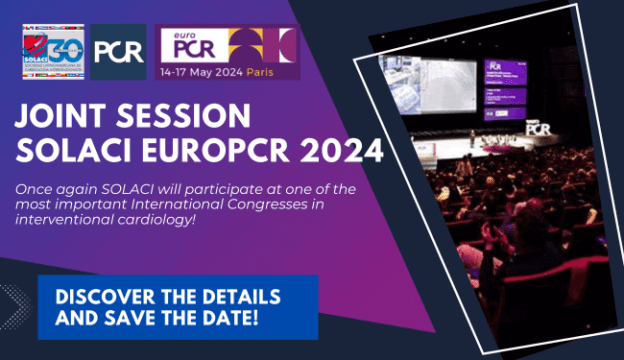Severe tricuspid regurgitation (TR) has been associated with higher mortality and significant limitations to patient quality of life, with considerable rates of hospitalization for cardiac failure (CF). Transcatheter edge-to-edge repair (TEER) with TriClip has been shown effective to reduce symptoms, with low risk of periprocedural complications.

The aim of this study was to assess functional capacity and impact of TEER on patient health status. The pivotal study TRILUMINATE compared this therapy against optimal medical treatment (OMT) and did not find differences in mortality or hospitalizations for cardiac failure. However, symptoms saw a significant improvement, as did quality of life, as reported by patients.
Even though there was no reduction in mortality or cardiac failure, and this has generated criticism as regards hard end point outcomes, the significant improvement in quality of life (QoL) should not be overlooked, especially in patients with multiple hospitalizations, functional limitations and high morbidity burden.
The main objective of this study was to describe the magnitude and timing of TEER’s beneficial effect on health status, and to assess patient population heterogeneity. Study patients had severe TR, were in functional class II to IV, had pulmonary artery systolic pressure ≤70 mmHg, no associated surgical comorbidities, and had received medical treatment for 30 days, prior randomization.
Read also: Evolution of Bicuspid Valves at 12 Months.
Health status was assessed at set off, 30 days, 6 months, and one year, using the Kansas questionnaire (KCCQ), which looks at 5 domains: physical limitation, symptoms, quality of life, social limitations and Independence.
Primary end point was change in Kansas questionnaire score, from set off to one year after procedure, exploring possible heterogeneity by analyzing subgroups.
Between August 2019 and September 2021, the study included 350 patients from 80 centers. Cohort mean age was 78±7 years, 45% were men and 12% presented chronic pulmonary disease. Mean initial KCCQ was 55.8±23.6, and quality of life was the most affected domain (48.2±26.3).
Read also: Carotid Stenosis and TAVR.
Patients undergoing TEER, KCCQ score increased mean 14.3 monthly, with similar improvement at 6 and 12 months. All KCCQ domains improved significantly, especially quality of life (mean change Δ 19.8 points). Instead, patients undergoing OMT showed mean improvement 4.8 points at one month and one year.
When comparing groups, KCCQ scored better in the TEER arm vs. OMT (mean difference between groups: 11.2 points), with persistent improvement at 6 months (mean difference 11.2 points) and one year (mean difference 10.4 points). This difference was maintained across domains, quality of life and associated social limitations showing the most significant change.
Subgroup analysis showed TEER was consistent across prespecified groups, being most effective in patients with “conserved cardiac index”. Two exploratory analysis were carried out, which revealed a correlation between improved TR and concurrent changes in KCCQ score, estimating that improvement in TR grade was associated to a 4.1-point increase in KCCQ score.
Conclusions
The TRICLIP showed that transcatheter edge-to-edge repair resulted in substantial improvement in health status vs. OMT. These outcomes were apparent since month 1 and were maintained at one year followup, both in the general cohort and prespecified groups.

Dr. Omar Tupayachi.
Member of the Editorial Board of SOLACI.org.
Original Title: Health Status After Transcatheter Tricuspid-Valve Repair in Patients With Severe Tricuspid Regurgitation.
Reference: Arnold SV, Goates S, Sorajja P, Adams DH, von Bardeleben RS, Kapadia SR, Cohen DJ; TRILUMINATE Pivotal Trial Investigators. Health Status After Transcatheter Tricuspid-Valve Repair in Patients With Severe Tricuspid Regurgitation. J Am Coll Cardiol. 2024 Jan 2;83(1):1-13. doi: 10.1016/j.jacc.2023.10.008. Epub 2023 Oct 26. PMID: 37898329.
Subscribe to our weekly newsletter
Get the latest scientific articles on interventional cardiology





